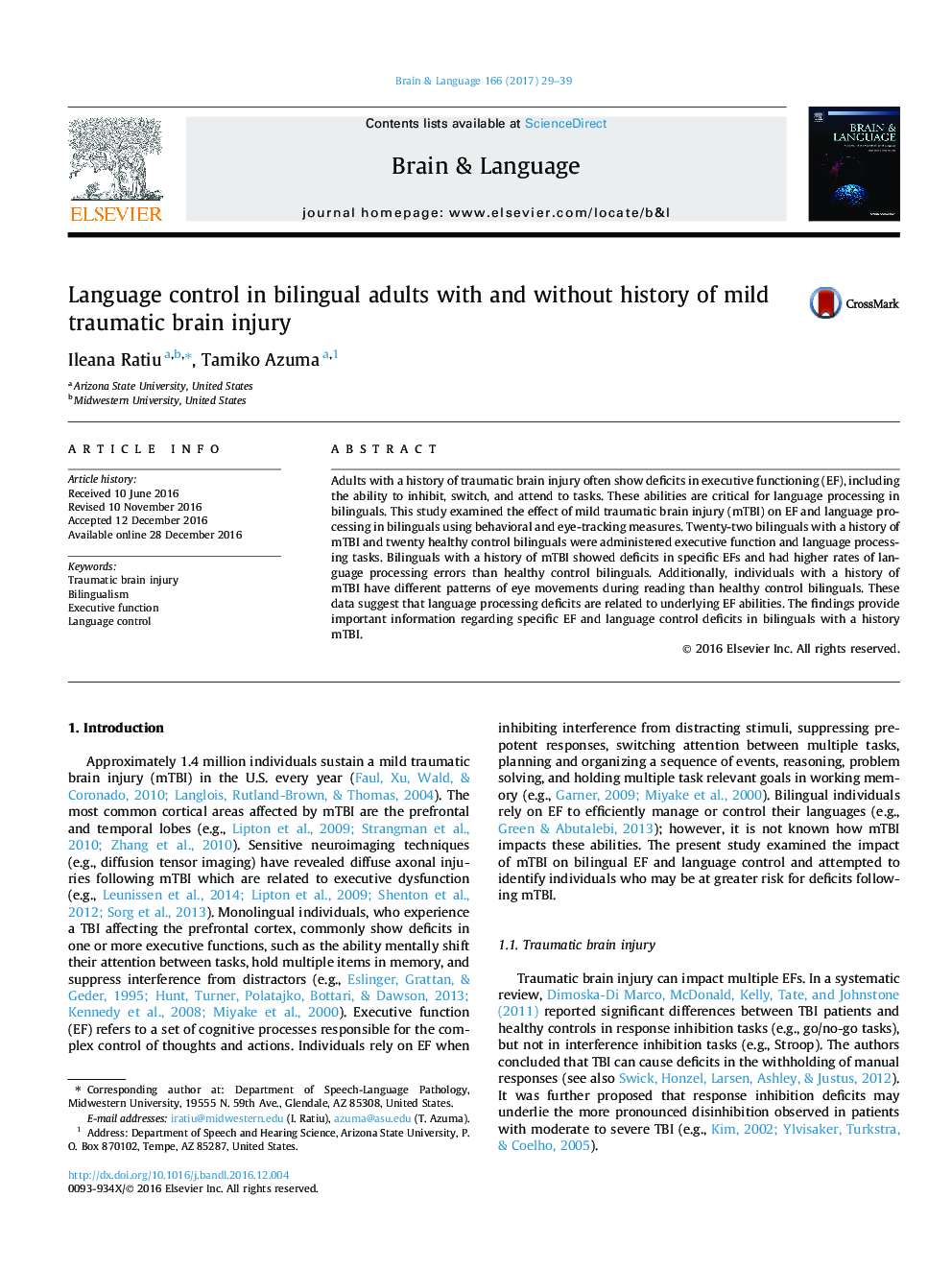| Article ID | Journal | Published Year | Pages | File Type |
|---|---|---|---|---|
| 5041282 | Brain and Language | 2017 | 11 Pages |
â¢Bilinguals with a history of mTBI show EF and language processing deficits.â¢These deficits are revealed using behavioral and eye-tracking methodology.â¢Language processing errors may arise from inhibition deficits following mTBI.
Adults with a history of traumatic brain injury often show deficits in executive functioning (EF), including the ability to inhibit, switch, and attend to tasks. These abilities are critical for language processing in bilinguals. This study examined the effect of mild traumatic brain injury (mTBI) on EF and language processing in bilinguals using behavioral and eye-tracking measures. Twenty-two bilinguals with a history of mTBI and twenty healthy control bilinguals were administered executive function and language processing tasks. Bilinguals with a history of mTBI showed deficits in specific EFs and had higher rates of language processing errors than healthy control bilinguals. Additionally, individuals with a history of mTBI have different patterns of eye movements during reading than healthy control bilinguals. These data suggest that language processing deficits are related to underlying EF abilities. The findings provide important information regarding specific EF and language control deficits in bilinguals with a history mTBI.
